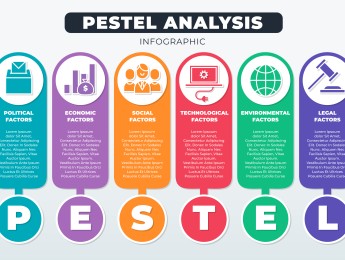This comprehensive training course is designed to empower current and aspiring leaders with advanced change management capabilities. Participants will gain in-depth knowledge of the tools, techniques, and strategic thinking required to lead successful organizational transformations. At its core, the course emphasizes the importance of collaborative ideation and adaptive leadership to navigate the complexities of change.
Through a blend of interactive workshops, real-world case studies, and hands-on planning exercises, participants will learn how to craft realistic, actionable, and sustainable change strategies. The course also explores key areas such as stakeholder engagement, emotional intelligence in leadership, managing resistance to change, and aligning change initiatives with organizational goals.
Whether you are guiding a team through internal restructuring or leading enterprise-wide innovation, this program will help you confidently design and execute change plans that drive measurable results and foster a culture of continuous improvement.
Upon completion of this course, participants will be able to:
- Comprehend pivotal factors influencing change, both internal and external.
- Initiate changes effectively.
- Facilitate seamless integration of changes within their teams.
- Grasp fundamental motivation principles and practical strategies for efficacy.
- Formulate effective and proficient teams.
- Evaluate their Emotional Intelligence (E.I) Profile and its impact.
- Apply the 5 core competencies of E.I effectively.
- Employ persuasive techniques for effective reprogramming and persuasion.
- Identify requisite personal and organisational changes.
- Cultivate a proactive leadership approach.
This course is ideal for:
- Senior executives leading strategic change initiatives.
- Project managers and team leaders.
- Department heads and supervisors aiming to build adaptable, high-performing teams.
- HR professionals and organizational development specialists designing and supporting change processes.
- Consultants and business analysts seeking to deepen their change management expertise.
- Suitable for professionals across public and private sectors involved in managing organizational change.
This course employs a diverse array of adult learning techniques to ensure comprehensive understanding and full engagement. Participants will be immersed in real-world scenarios requiring sophisticated change management strategies and will engage in collaborative group exercises and hands-on activities to devise practical solutions.
Role-playing exercises will encourage participants to apply their learning by developing change management plans and seeking constructive feedback on their strategies' effectiveness, adaptability, and impact.
Day 5 of each course is reserved for a Q&A session, which may occur off-site. For 10-day courses, this also applies to day 10
Section 1: Essential Leadership Attributes and Change Dynamics
- Exploring the core attributes of effective leadership.
- Understanding the complexities of personal development and change.
- Utilising the PESTLE Model for comprehensive analysis.
- Implementing effective self-coaching techniques in change management.
- Cultivating self-assurance and confidence in oneself and others.
Section 2: Strategic Planning and Implementation
- Navigating the shift in change management paradigms.
- Key considerations for successful change implementation.
- Analysing reactions and responses to change.
- Identifying common pitfalls leading to unsuccessful changes.
- Developing leadership skills for driving change and achieving high performance.
Section 3: Stakeholder Engagement and Communication
- Establishing trust-based interpersonal relationships.
- Techniques for subconscious mind reprogramming.
- Cultivating an innovative mindset for adaptive change.
- Understanding the nuances between persuasion and influence.
- Enhancing communication proficiency and fostering team cohesion.
Section 4: Motivation and Engagement Strategies
- Delving into the intricacies of motivation and its significance.
- Implementing effective strategies to motivate teams during change.
- Utilising feedback mechanisms for continuous improvement.
- Promoting a culture of open communication and transparency.
- Empowering individuals to embrace change and drive organisational success.
Section 5: Leadership Development and Emotional Intelligence
- Assessing and understanding one's Emotional Intelligence (E.I) profile.
- Applying the five core competencies of Emotional Intelligence effectively.
- Leveraging persuasive techniques for effective reprogramming and persuasion.
- Identifying personal and organisational change needs for proactive leadership.
- Cultivating a resilient and adaptable leadership style to navigate change effectively.
Upon successful completion of this training course, delegates will be awarded a Holistique Training Certificate of Completion. For those who attend and complete the online training course, a Holistique Training e-Certificate will be provided.
Holistique Training Certificates are accredited by the British Assessment Council (BAC) and The CPD Certification Service (CPD), and are certified under ISO 9001, ISO 21001, and ISO 29993 standards.
CPD credits for this course are granted by our Certificates and will be reflected on the Holistique Training Certificate of Completion. In accordance with the standards of The CPD Certification Service, one CPD credit is awarded per hour of course attendance. A maximum of 50 CPD credits can be claimed for any single course we currently offer.
- Course Code MG2-142
- Course Format Classroom, Online,
- Duration 5 days














